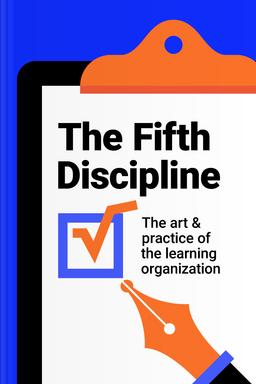What is The Fifth Discipline about?
This book explores the concept of a learning organization, where individuals and teams continually expand their capabilities. It introduces five key disciplines that aid in fostering a culture of collaborative learning, systems thinking, and shared vision. Through practical insights and real-world examples, it demonstrates how organizations can transform their structures and strategies to thrive in a complex and changing environment, ultimately enhancing effectiveness and innovation.
Who should read The Fifth Discipline
- Managers seeking to enhance team learning
- Educators interested in organizational development
- Entrepreneurs aiming to innovate sustainably
What is Thinking In Systems about?
This insightful guide introduces readers to the principles of systems thinking, emphasizing how to understand and tackle complex problems in various contexts. By exploring feedback loops, stocks, and flows, it provides practical tools for analyzing interconnected systems. The book encourages sustainable solutions by highlighting the importance of seeing the bigger picture, making it essential for anyone interested in environmental issues, social dynamics, or organizational development.
Who should read Thinking In Systems
- Environmentalists seeking systemic solutions to global issues.
- Students studying sustainability and systems theory concepts.
- Professionals in management looking for effective problem-solving strategies.
What is Antifragile about?
Exploring the concept of antifragility, this book delves into how systems, individuals, and organizations can thrive amid chaos and uncertainty. Taleb contrasts fragility and robustness, illustrating that some entities benefit from stress and volatility. Through a blend of philosophical insights and real-world examples, he argues for embracing disorder to foster growth and resilience, providing a fresh perspective on risk and unpredictability in various aspects of life.
Who should read Antifragile
- Entrepreneurs seeking resilience strategies for their businesses.
- Students of economics and risk management disciplines.
- Individuals interested in personal growth and adaptability.


